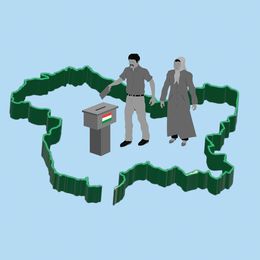As a Kashmir watcher for more than 30 years, I must talk about the shifting sands in the valley where the first elections are being held in over a decade. This is also the first poll since the abrogation of article 370. But the fascinating development is the ‘mainstreaming’ of separatist elements in this election.
The banned socio-religious organisation, the Jamaat-e-Islami, shut down by the Modi government in 2019 under the anti-terror law, has backed at least 10 candidates across the valley. Engineer Rashid, jailed in a terror funding case and out on bail, did not just win a Lok Sabha seat by a record margin; he has now fielded or backed at least 30 candidates. In some way, it is the ‘mainstreaming’ of separatism and an electoral moderation of extremist politics.
The last time we saw this on a smaller scale in Kashmir was in 2002, when Sajad Lone, then a separatist, fielded a proxy candidate. Today, Lone is regarded as mainstream and there is a new generation of experimental leaders dipping their toes in election waters.
What this may throw up remains unpredictable.
Parties like Omar Abdullah’s National Conference and Mehbooba Mufti’s PDP have accused the Jamaat-backed candidates, as well as Rashid, of being proxies for the BJP. Others like CPI(M) veteran Mohamad Yousuf Tarigami, who is being challenged in Kulgam by a Jamaat candidate, go one step further. “Delhi is facilitating these people, it is an ashirwaad [blessing] for those who were previously called anti-India,” said Tarigami.
I asked Sayar Ahmed Reshi, the Jamaat candidate taking on Tarigami, what made him take the electoral plunge. “Development and cleaning up the political system of wrongdoing, of goondas,” he told me, as he campaigned in a remote village. The Jamaat-e-Islami last engaged with electoral politics in 1987, in an election widely believed to be rigged. That election birthed the rise of Syed Salahuddin, today the head of the Hizbul Mujahideen, who sought refuge in Pakistan.
The other big change in the election is the complete absence of any reference to Pakistan. There was a time when separatists and militants, backed by Pakistan, would give boycott calls in every election. Kashmir has officially ended the politics of boycott and shifted to the politics of participation.
Is this a rebel vote within the framework of democracy? Is there simmering discontent beneath the surface? Do the bustling night bazaars and thronging tourists capture the full picture? Is article 370 still an issue? The answers to some of these questions will take time to emerge.
But, as Riyaz Majid, a professor who has joined Engineer Rashid’s party, told me, “This election is about unlocking our suffocation.” We were sitting in an apple orchard in south Kashmir and talking with a group of other politicians. As the apples were plucked from the trees and pulped into juice, in Kashmir’s version of a farm-to-table experience, one of them spontaneously raised his glass of juice and said, “Cheers to democracy.”
And so we all toasted the people of Jammu and Kashmir and democracy.
The outcome of the election may throw up major surprises. The debate will continue over who was backed by whom and what the blueprint may be to smash the status quo. But the process is way more interesting than the result.
I can drink to that.
editor@theweek.in


